1. How Nuts Affect Cholesterol
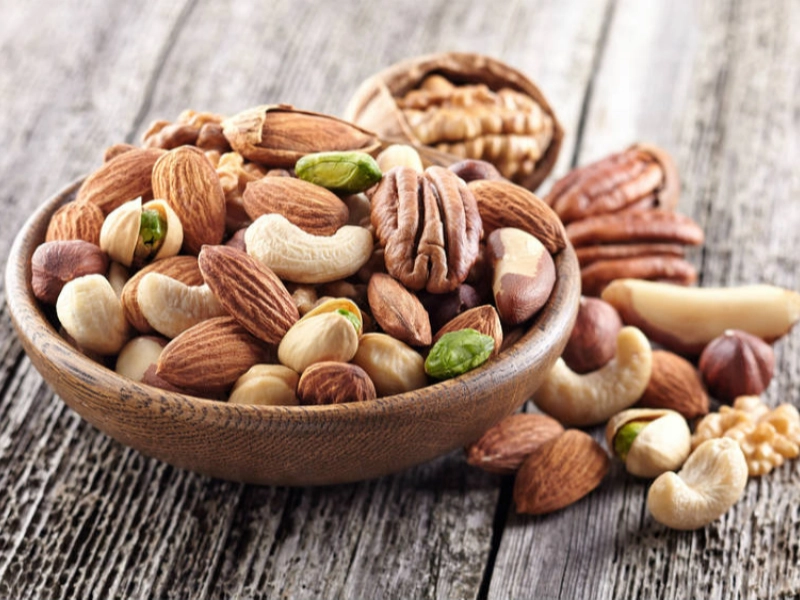
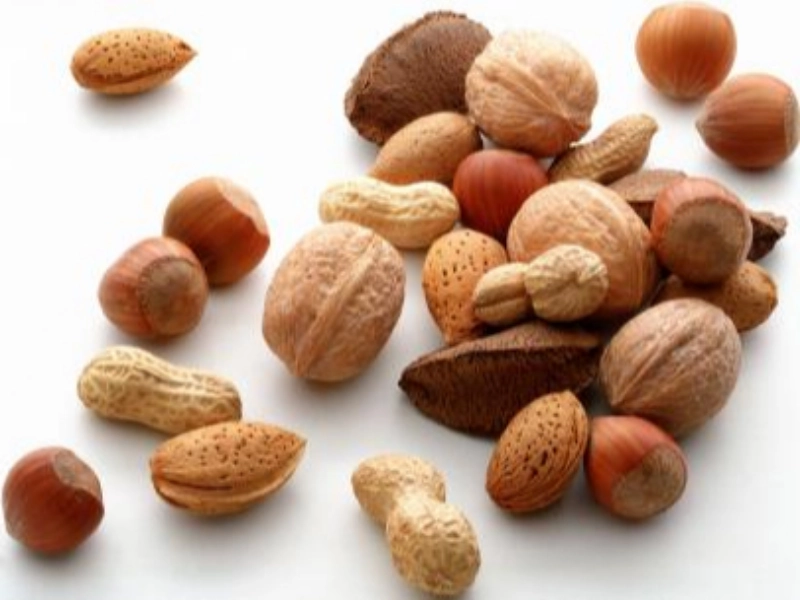 Found in the body's cells as well as the bloodstream, cholesterol is a waxy molecule. Production of hormones, vitamin D, and bile acids that aid in fat digestion depends on it. Not all cholesterol, meanwhile, is produced equally. Low-density lipoprotein (LDL) and high-density lipoprotein (HDL) are the two primary varieties. Many refer to LDL as "bad" cholesterol, as excessive levels can cause artery plaque to develop, therefore raising the risk of heart disease. As HDL helps eliminate LDL from the bloodstream, it is also referred to as "good" cholesterol. Heart health depends on keeping a good mix between these two kinds.
3. Nutritional Characteristics of Nuts
Found in the body's cells as well as the bloodstream, cholesterol is a waxy molecule. Production of hormones, vitamin D, and bile acids that aid in fat digestion depends on it. Not all cholesterol, meanwhile, is produced equally. Low-density lipoprotein (LDL) and high-density lipoprotein (HDL) are the two primary varieties. Many refer to LDL as "bad" cholesterol, as excessive levels can cause artery plaque to develop, therefore raising the risk of heart disease. As HDL helps eliminate LDL from the bloodstream, it is also referred to as "good" cholesterol. Heart health depends on keeping a good mix between these two kinds.
3. Nutritional Characteristics of Nuts
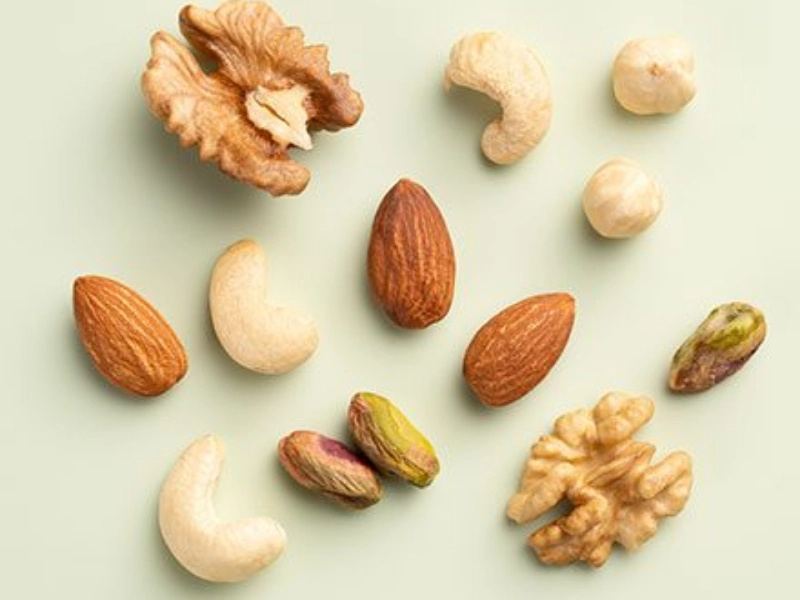 Nutrient powerhouses, nuts combine good fats, protein, fiber, vitamins, and minerals. Monounsaturated and polyunsaturated fats—known to enhance heart health—are the main forms of fat found in nuts. For instance, these helpful fats abound in almonds, walnuts, and pistachios. Furthermore included in nuts are stanols and plant sterols, substances meant to help the intestines prevent absorbing cholesterol. For people wishing to naturally reduce their cholesterol, nuts are a great alternative because of their special nutritional composition.
4. Healthy Fats: Their Function
Nutrient powerhouses, nuts combine good fats, protein, fiber, vitamins, and minerals. Monounsaturated and polyunsaturated fats—known to enhance heart health—are the main forms of fat found in nuts. For instance, these helpful fats abound in almonds, walnuts, and pistachios. Furthermore included in nuts are stanols and plant sterols, substances meant to help the intestines prevent absorbing cholesterol. For people wishing to naturally reduce their cholesterol, nuts are a great alternative because of their special nutritional composition.
4. Healthy Fats: Their Function
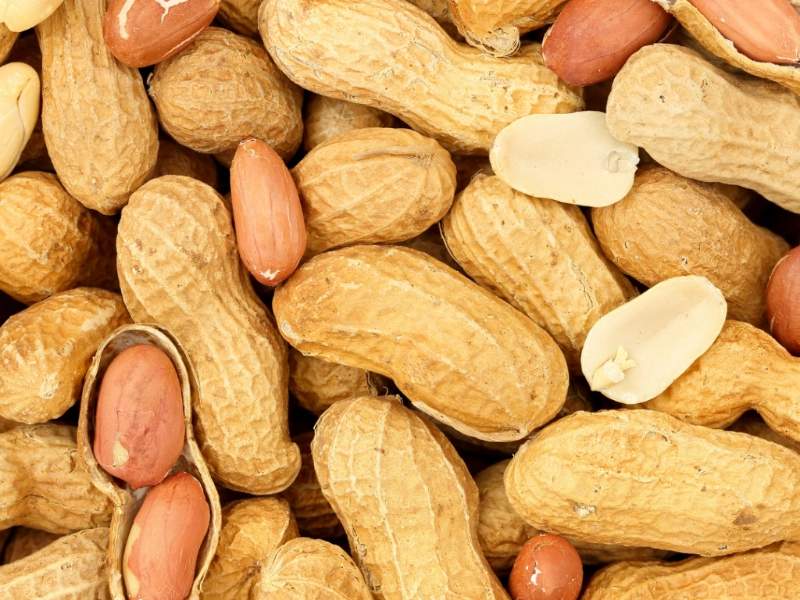 Cholesterol levels are much lowered by the beneficial fats present in nuts. While raising HDL cholesterol, monounsaturated fats—those present in almonds and cashews—can help lower LDL cholesterol. By lowering triglycerides and thereby reducing inflammation, polyunsaturated fats—including omega-3 fatty acids found in walnuts—also help heart health. Including these healthy fats into the diet can help to produce better lipid profiles and reduce cardiovascular disease risk.
5. Nut Fiber Count
Cholesterol levels are much lowered by the beneficial fats present in nuts. While raising HDL cholesterol, monounsaturated fats—those present in almonds and cashews—can help lower LDL cholesterol. By lowering triglycerides and thereby reducing inflammation, polyunsaturated fats—including omega-3 fatty acids found in walnuts—also help heart health. Including these healthy fats into the diet can help to produce better lipid profiles and reduce cardiovascular disease risk.
5. Nut Fiber Count
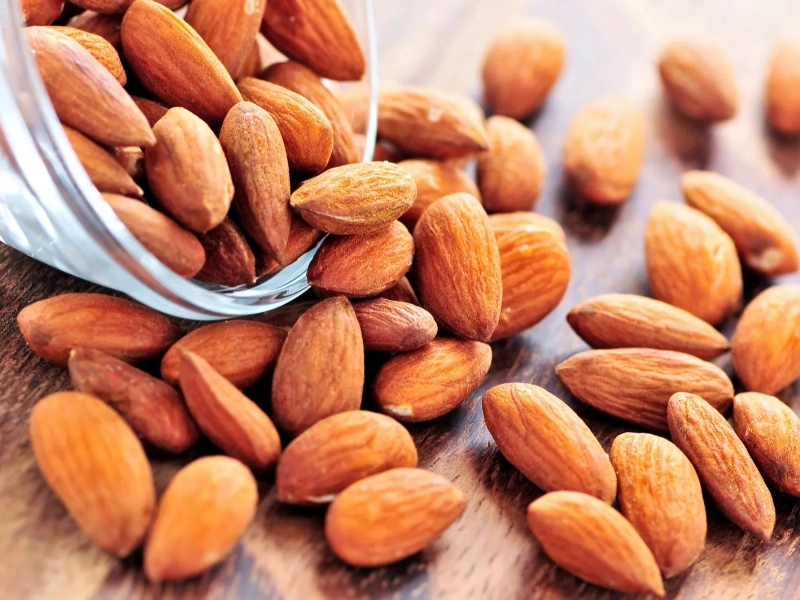 Another vital element of nuts that helps them to reduce cholesterol is fiber. Both soluble and insoluble fiber abound in nuts. Particularly soluble fiber binds to cholesterol in the digestive system and helps the body to eliminate it, therefore decreasing LDL cholesterol levels. This procedure lowers the general absorption of cholesterol, so producing lower cholesterol levels. Frequent nut consumption can greatly boost fiber intake, so improving heart health.
6. Antioxidants and cardiovascular health
Another vital element of nuts that helps them to reduce cholesterol is fiber. Both soluble and insoluble fiber abound in nuts. Particularly soluble fiber binds to cholesterol in the digestive system and helps the body to eliminate it, therefore decreasing LDL cholesterol levels. This procedure lowers the general absorption of cholesterol, so producing lower cholesterol levels. Frequent nut consumption can greatly boost fiber intake, so improving heart health.
6. Antioxidants and cardiovascular health
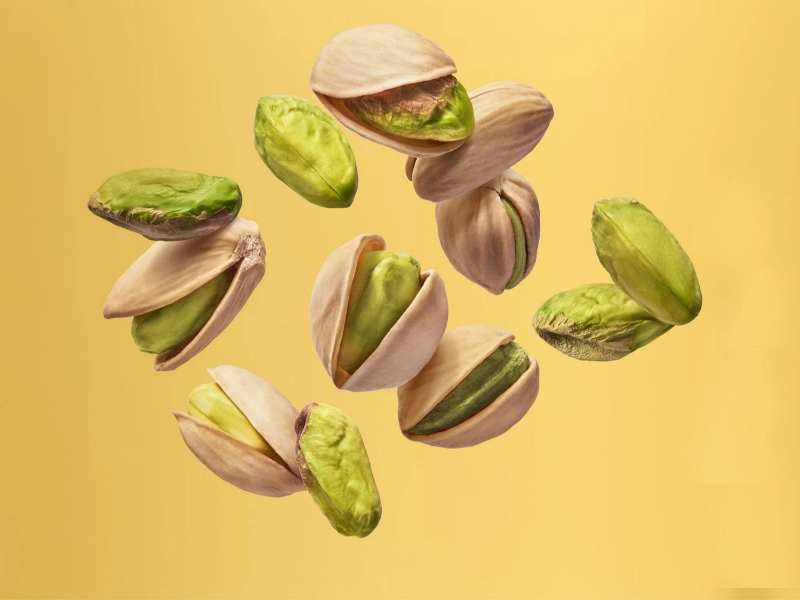 Rich in antioxidants, nuts assist in fighting oxidative stress and body inflammation. Given that oxidative stress can cause LDL cholesterol to oxidize, it is more likely that it will help to create artery plaque. Nutrients, including selenium and vitamin E, among others, assist in shielding against this process. Reduced inflammation and oxidative stress help nuts improve cardiovascular health and minimize heart disease risk.
7. Portion Management and Moderation
Rich in antioxidants, nuts assist in fighting oxidative stress and body inflammation. Given that oxidative stress can cause LDL cholesterol to oxidize, it is more likely that it will help to create artery plaque. Nutrients, including selenium and vitamin E, among others, assist in shielding against this process. Reduced inflammation and oxidative stress help nuts improve cardiovascular health and minimize heart disease risk.
7. Portion Management and Moderation
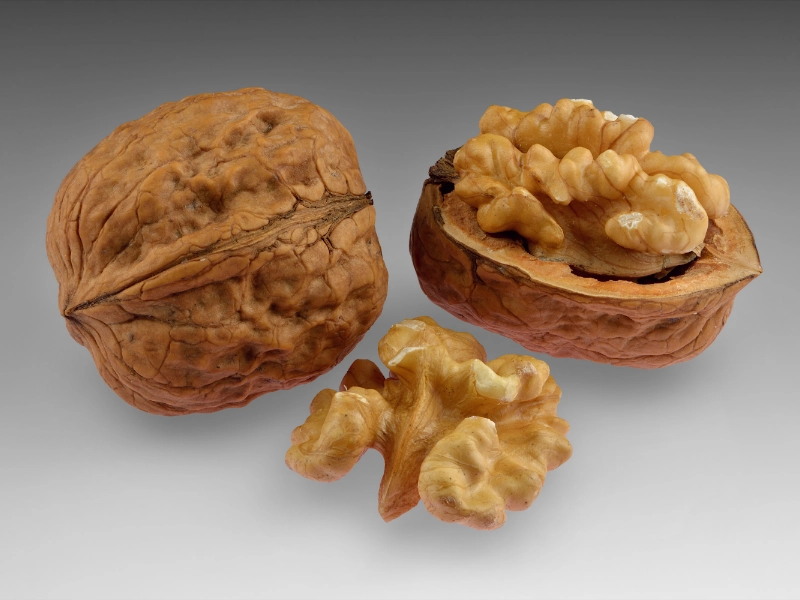 Although nuts have many health advantages, because of their high calorie count, portion control is vital. Usually advised as a serving size is a little handful of nuts, about one ounce. Overconsumption can result in too high calorie intake, which would offset the benefits on cholesterol levels. Along with other heart-healthy foods, including nuts in a balanced diet will let people enjoy its advantages without overdoing it.
8. Adding nuts to your diet
Although nuts have many health advantages, because of their high calorie count, portion control is vital. Usually advised as a serving size is a little handful of nuts, about one ounce. Overconsumption can result in too high calorie intake, which would offset the benefits on cholesterol levels. Along with other heart-healthy foods, including nuts in a balanced diet will let people enjoy its advantages without overdoing it.
8. Adding nuts to your diet
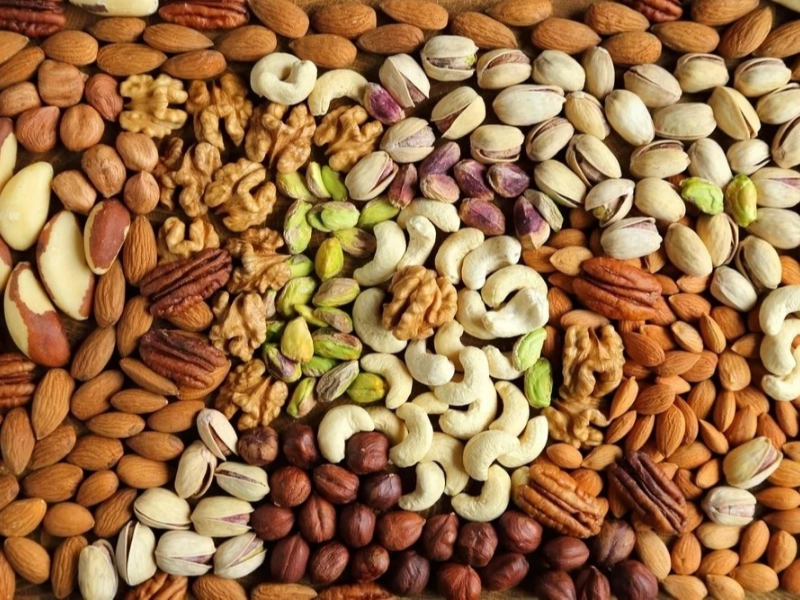 Including nuts in your diet may be fun and easy. One can consume them raw, roasted, or mixed into different cuisines. Tossing a handful of nuts into cereal, yogurt, or salads will improve the nutritional worth of these dishes. For more creaminess, nuts can also be incorporated into smoothies or topped baked products. People can easily include nuts in their everyday diet by playing about with several recipes and combinations.
9. Studies Backing Nuts and Cholesterol
Including nuts in your diet may be fun and easy. One can consume them raw, roasted, or mixed into different cuisines. Tossing a handful of nuts into cereal, yogurt, or salads will improve the nutritional worth of these dishes. For more creaminess, nuts can also be incorporated into smoothies or topped baked products. People can easily include nuts in their everyday diet by playing about with several recipes and combinations.
9. Studies Backing Nuts and Cholesterol
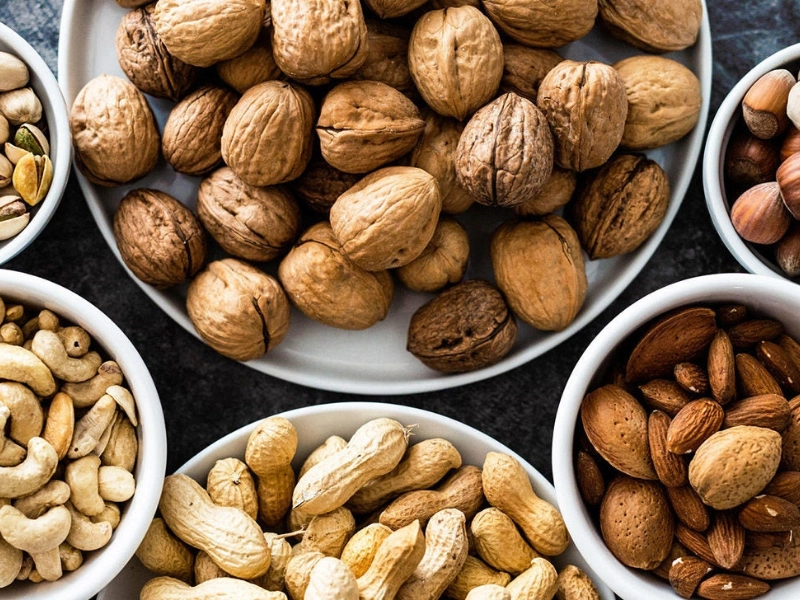 Many studies have indicated how well nuts lower cholesterol. Studies show that consistent nut intake is linked to decreased LDL cholesterol and better general heart condition. According to a meta-analysis of clinical studies, for example, daily nut consumption can significantly lower LDL and total cholesterol levels. These results support the theory that nuts can be a quite useful tool for naturally controlling cholesterol.
10. Synopsis of Nutritional Affections on Cholesterol
Many studies have indicated how well nuts lower cholesterol. Studies show that consistent nut intake is linked to decreased LDL cholesterol and better general heart condition. According to a meta-analysis of clinical studies, for example, daily nut consumption can significantly lower LDL and total cholesterol levels. These results support the theory that nuts can be a quite useful tool for naturally controlling cholesterol.
10. Synopsis of Nutritional Affections on Cholesterol
 A great and nutritious approach to naturally boost heart health and reduce cholesterol levels is nuts. Their unusual mix of antioxidants, fiber, and good fats helps to lower the risk of cardiovascular disease and enhance lipid profiles. Practicing portion management and including nuts in a balanced diet can help people maximize the advantages of this superfood. Adopting a heart-healthy lifestyle, including nuts, can result in long-lasting lower cholesterol and general well-being.
A great and nutritious approach to naturally boost heart health and reduce cholesterol levels is nuts. Their unusual mix of antioxidants, fiber, and good fats helps to lower the risk of cardiovascular disease and enhance lipid profiles. Practicing portion management and including nuts in a balanced diet can help people maximize the advantages of this superfood. Adopting a heart-healthy lifestyle, including nuts, can result in long-lasting lower cholesterol and general well-being.